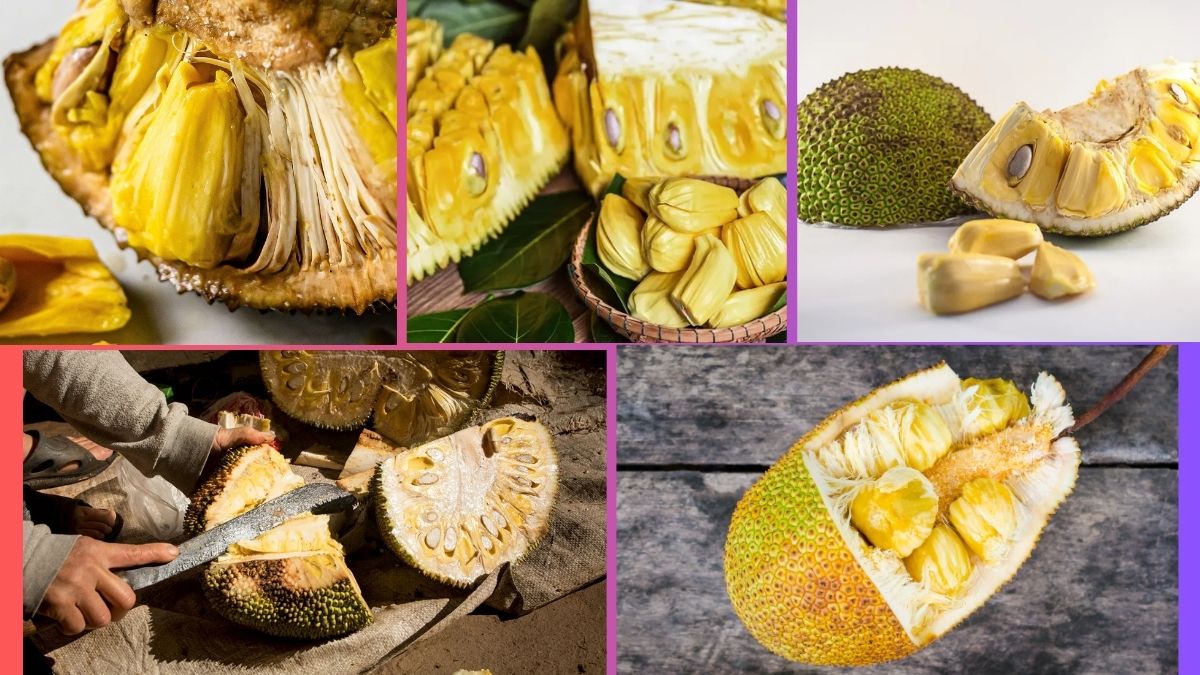Known for its massive size, spiky green skin, and distinctive aroma, jackfruit is one of the most remarkable fruits found in the tropics. Revered as a superfood, jackfruit is celebrated for its versatility — it can be eaten raw when ripe, cooked as a vegetable when unripe, and even used as a plant-based meat alternative.
In recent years, jackfruit has gained international attention as a vegan-friendly food and sustainable crop, leading to growing curiosity about where it’s produced in the greatest quantity. So, which country is the largest jackfruit producer globally? In this article, we’ll explore the global jackfruit industry, spotlight the top-producing nation, and examine why it holds this title, while also highlighting other major producers contributing to the fruit’s global popularity.
A Glimpse into the Global Jackfruit Industry
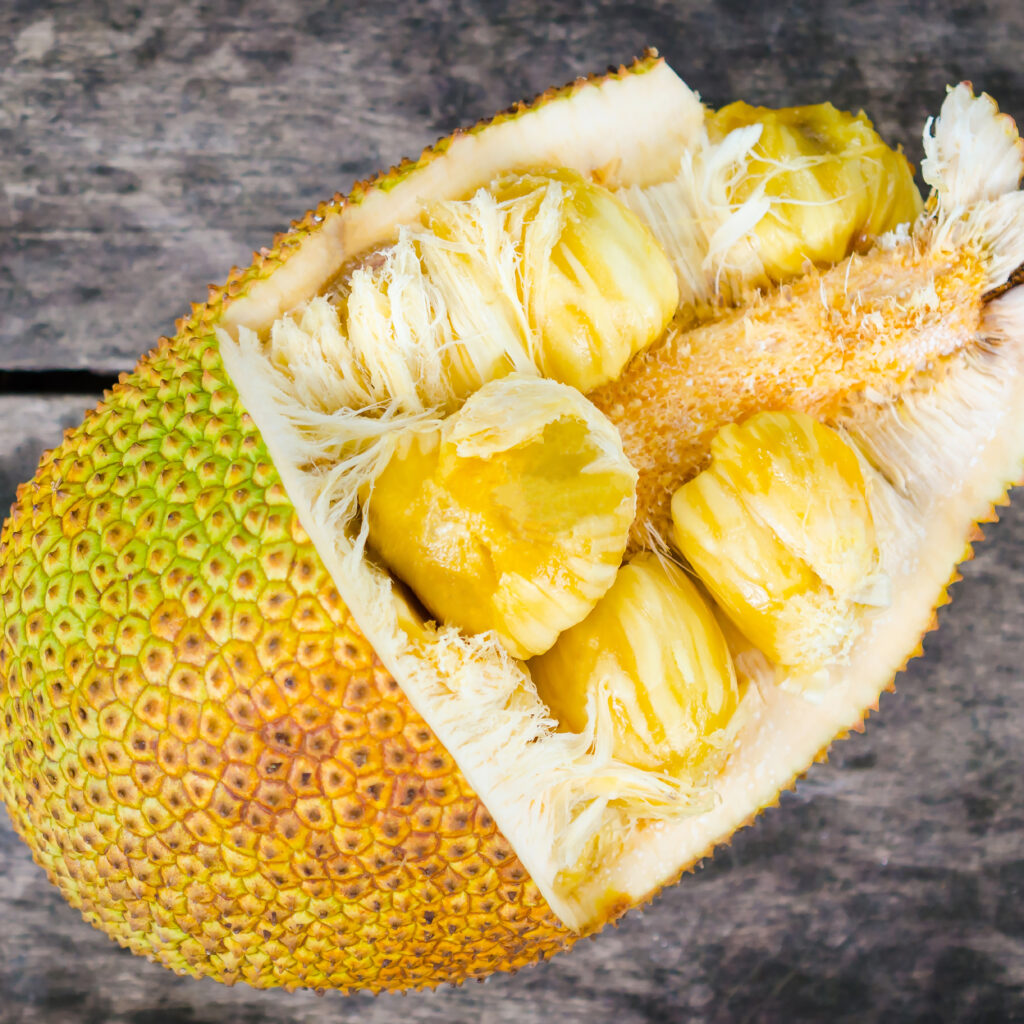
Jackfruit (Artocarpus heterophyllus) is native to the Western Ghats of India and is widely cultivated across tropical and subtropical regions of South and Southeast Asia, the Caribbean, and parts of Africa and Central America.
The global production of jackfruit exceeds 3 million metric tons annually, with the majority consumed domestically in producing countries. However, jackfruit’s growing reputation as a sustainable, high-yield, and drought-tolerant crop has fueled interest in its commercial potential worldwide — particularly in health-conscious, vegetarian, and vegan markets.
Which Country Is the Largest Jackfruit Producer Globally?
India holds the title as the largest jackfruit producer globally, producing an estimated 1.5 million metric tons of jackfruit each year. This accounts for nearly 50% of the world’s total jackfruit production, making India the undisputed leader in cultivating this unique fruit.
Jackfruit has been an integral part of India’s food culture for centuries, cherished for its culinary, medicinal, and religious significance. The fruit is grown in various parts of the country, with both small-scale farmers and commercial plantations contributing to the immense production figures.
Why Is India the Top Jackfruit Producer?
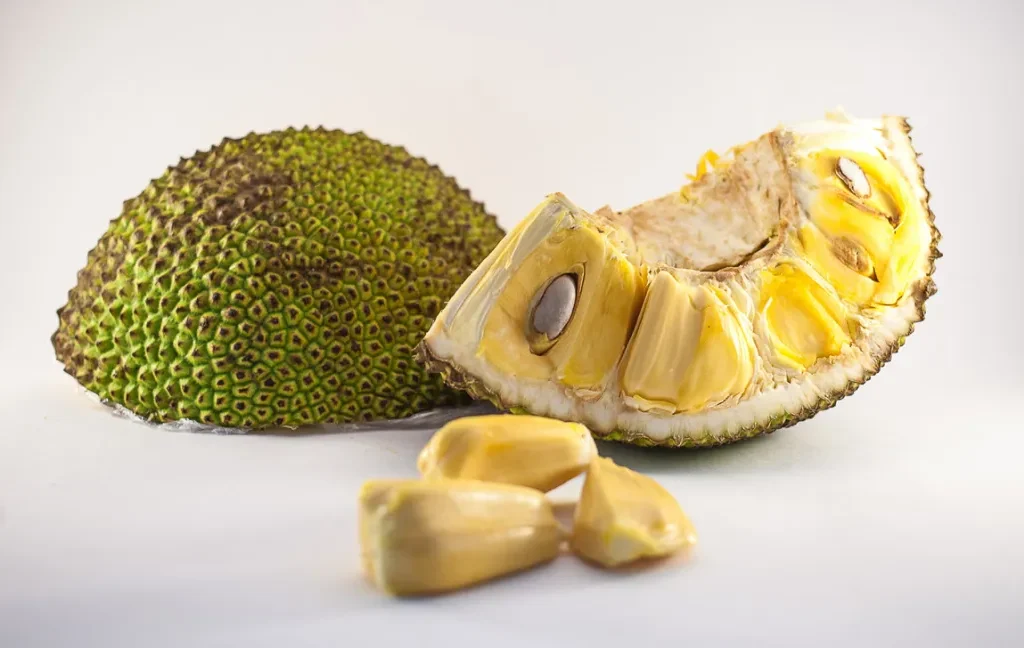
1. Native Origin and Favorable Climate
As the native home of jackfruit, India enjoys a natural advantage in cultivating the fruit. The tropical and subtropical regions of India, with their warm temperatures, high humidity, and seasonal monsoon rains, provide ideal conditions for jackfruit trees to flourish.
States like Kerala, Karnataka, Tamil Nadu, Maharashtra, West Bengal, Assam, and Odisha are renowned for their jackfruit orchards, with some trees living for over 60 years and producing hundreds of fruits annually.
2. Deep Cultural and Culinary Significance
In India, jackfruit is more than just a fruit — it’s a part of the country’s culinary traditions, religious festivals, and folk medicine. The fruit is consumed in various forms:
- Unripe jackfruit is cooked as a savory vegetable in curries and stir-fries.
- Ripe jackfruit is eaten fresh, dried, or made into sweets, jams, and desserts.
- Jackfruit seeds are roasted or boiled as a nutritious snack.
- In some regions, jackfruit is associated with auspicious occasions and rituals, believed to symbolize abundance and prosperity.
This strong cultural connection ensures consistent domestic demand, encouraging large-scale cultivation.
3. Sustainability and Agricultural Benefits
Jackfruit trees are low-maintenance, drought-resistant, and high-yielding, making them a popular crop for smallholder farmers and agroforestry systems. One mature jackfruit tree can produce 100–250 fruits a year, with individual fruits weighing between 5–30 kilograms.
Given its resilience to pests, diseases, and adverse weather, jackfruit serves as a reliable income source for farmers, particularly in rural and hilly areas. This has contributed to its widespread cultivation across diverse regions of India.
4. Growing Global Demand for Plant-Based Foods
India has capitalized on the increasing international demand for plant-based foods and meat alternatives. Unripe jackfruit’s meaty texture makes it a popular vegan substitute for pulled pork, tacos, and curries in the U.S., Europe, and Australia.
As global health trends embrace jackfruit’s nutritional benefits — including its high fiber, low-calorie, and vitamin-rich profile — India’s capacity to meet both domestic and export demands has reinforced its leadership in global production.
Top 5 Jackfruit-Producing Countries (2022)
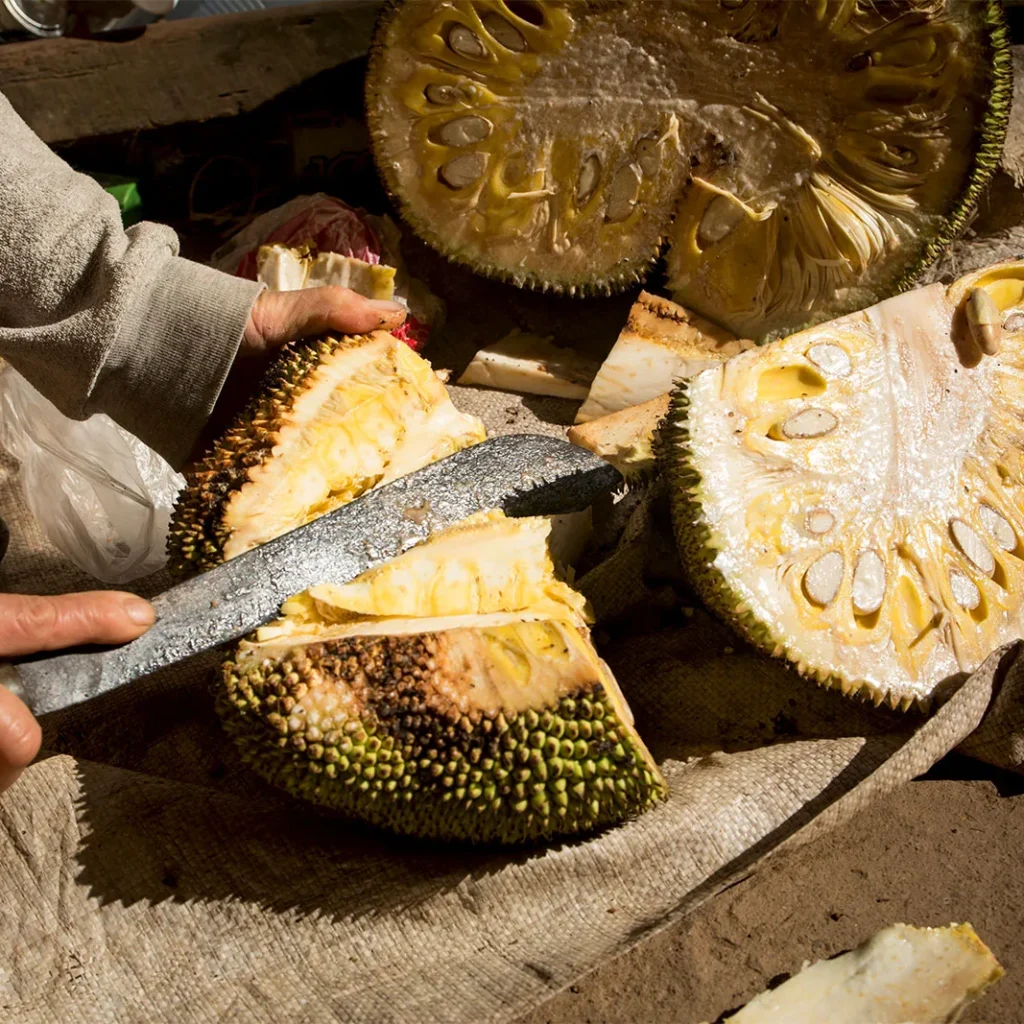
| Rank | Country | Production (Million Metric Tons) |
|---|---|---|
| 1 | India | 1.5 |
| 2 | Bangladesh | 1.0 |
| 3 | Thailand | 0.4 |
| 4 | Indonesia | 0.35 |
| 5 | Philippines | 0.25 |
As seen, India’s production surpasses even its closest competitors by a considerable margin.
Other Major Jackfruit-Producing Countries
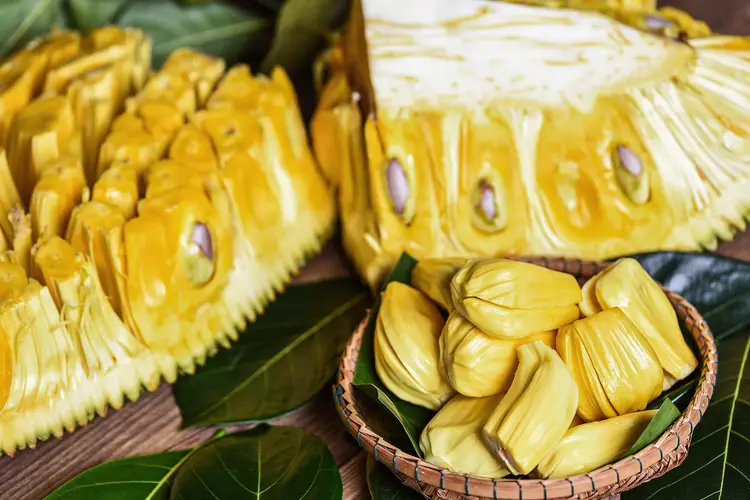
While India leads in jackfruit production, several countries also play important roles in the global market:
Bangladesh
Bangladesh ranks second globally, producing around 1 million metric tons annually. Jackfruit is the national fruit of Bangladesh, revered for its size, taste, and nutritional value. The fruit is consumed widely during summer, with both ripe and unripe forms featured in traditional dishes and rural markets.
Thailand
Thailand is known for its commercial jackfruit plantations, producing approximately 400,000 metric tons annually. Thai jackfruit varieties are often sweeter and milder in aroma, catering to export markets in China, the Middle East, and Europe. The country also processes jackfruit into chips, canned products, and desserts.
Indonesia
Indonesia produces around 350,000 metric tons of jackfruit annually. The fruit is used extensively in Indonesian cuisine, with dishes like Gudeg (young jackfruit curry) being popular in regions such as Yogyakarta and Central Java. Jackfruit wood is also highly valued for furniture and musical instruments.
Philippines
The Philippines cultivates around 250,000 metric tons of jackfruit annually, primarily in Mindanao, Cebu, and Davao regions. Known locally as ‘langka’, jackfruit is a staple in Filipino kitchens, used in sweets like turon (jackfruit spring rolls) and savory dishes.
Key Uses of Jackfruit in Global Markets
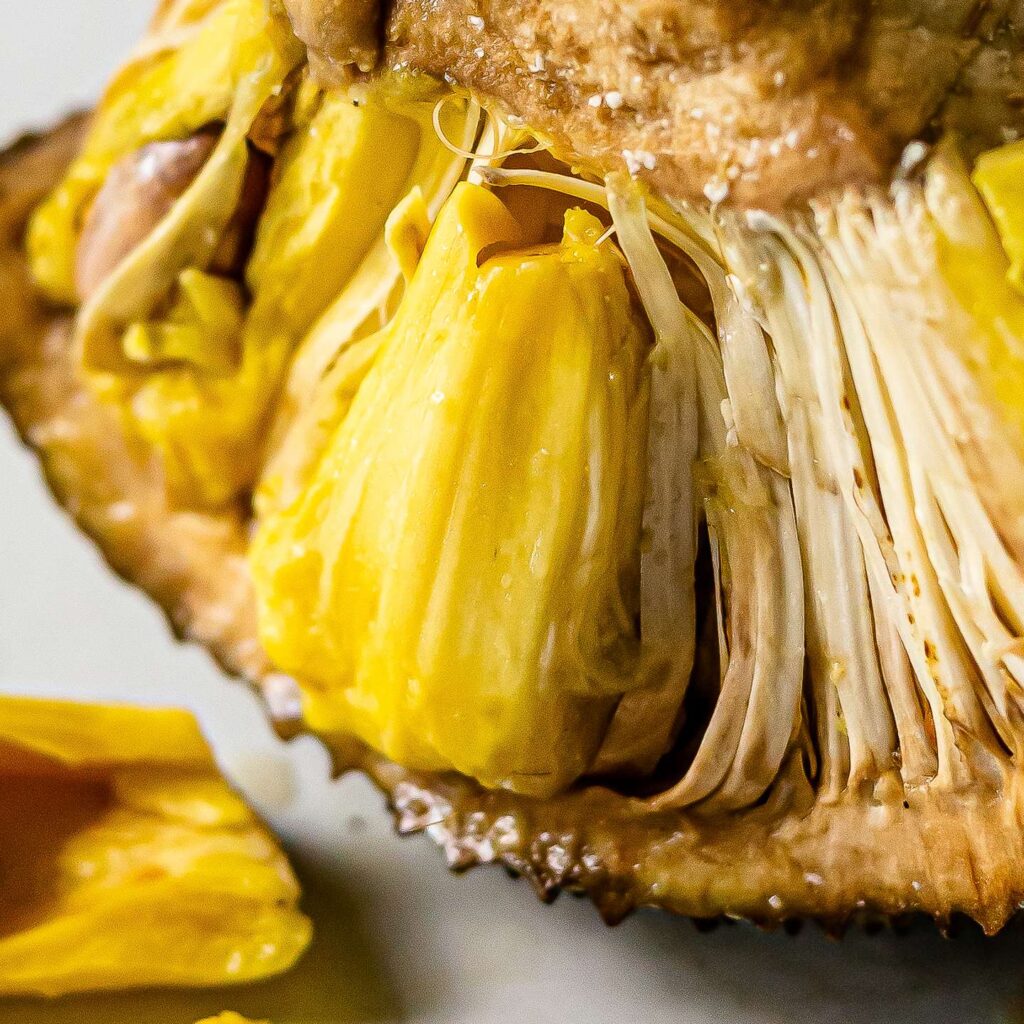
Jackfruit’s versatility extends beyond fresh consumption. Its various parts are used in a wide range of products:
- Meat Alternative: Unripe jackfruit mimics shredded meat in vegan and vegetarian recipes.
- Canned & Processed Products: Ready-to-eat jackfruit, canned young jackfruit, and frozen jackfruit for international markets.
- Jackfruit Chips: Thinly sliced and fried as a popular snack in India, Sri Lanka, and Southeast Asia.
- Jackfruit Sweets: Used in jams, jellies, ice creams, and traditional confections.
- Jackfruit Seeds: Boiled, roasted, or ground into flour for curries and snacks.
- Timber: Durable jackfruit wood is used in furniture and musical instruments.
Fun Jackfruit Facts
- Jackfruit is the largest tree-borne fruit in the world, with some specimens weighing up to 40 kg.
- A single jackfruit tree can bear over 200 fruits a year.
- The fruit is rich in vitamin C, potassium, dietary fiber, and antioxidants.
- Jackfruit trees are drought-tolerant and thrive in poor soil conditions, making them sustainable and eco-friendly.
- Jackfruit wood is naturally resistant to termites and is used in crafting doors, tables, and religious statues in India and Southeast Asia.
Challenges in Jackfruit Production
Despite its advantages, the jackfruit industry faces several challenges:
- Short Shelf Life: Ripe jackfruit spoils quickly, complicating transport and storage.
- Labor-Intensive Harvesting: Due to its size and weight, harvesting jackfruit requires skilled labor.
- Limited Export Infrastructure: Fresh jackfruit is difficult to export due to its perishability and strong aroma.
- Market Price Fluctuations: Prices can be unstable due to seasonal overproduction and limited processing facilities.
India is addressing these issues by investing in cold-chain logistics, processing units, and value-added jackfruit products for both domestic and export markets.
Conclusion
When it comes to jackfruit production, India stands as the largest producer globally, thanks to its native origin, favorable climate, cultural affinity, and strong domestic and growing international demand.
While other nations like Bangladesh, Thailand, Indonesia, and the Philippines are important players in the jackfruit market, India’s unmatched production volume and expanding value-added industries ensure its continued dominance in the years ahead.
As global trends lean toward sustainable, plant-based diets, jackfruit’s popularity is set to grow even further — and India will remain at the very heart of this movement.
